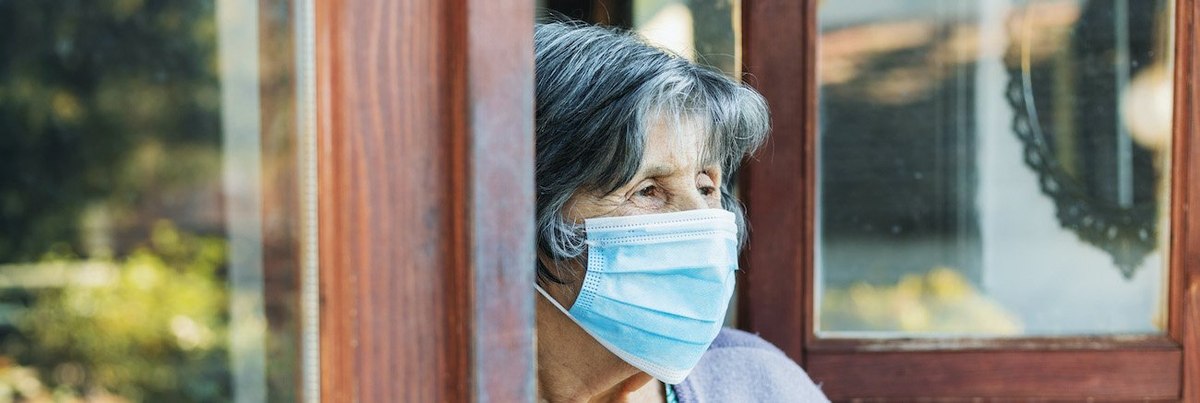The rise of the Delta COVID-19 variant has made Americans more fearful of what’s to come. In the latest Economist/YouGov poll, nearly four in ten believe the pandemic is only going to get worse – the highest percentage saying this since the beginning of 2021, though the figure is lower than what was seen in the surges of last summer and fall. Today, more think the worst is yet to come than believe the worst is over.
Since the end of May, the last time this question was asked, when the pace of vaccine injections were still high, perceptions of the pandemic have turned around. The share of the public thinking the pandemic is going to get worse jumped 27 points, from 11% then to 38% now. In May, 59% felt the “worse was behind us.” Now, 32% do, a similar drop of 27 points.
Today, 61% recognize that cases nationally are rising; 42% see them rising locally.
Republicans have always been more convinced that things would get better quickly. But they are less sure of that today, as the percentage of Republicans saying the worst is behind us has dropped 12 points since May to 51% now, while optimism among Independents is down 31 points to 34%. Among Democrats it has dropped the most: 37 points to 19%.
Looking ahead, Americans believe there is a long road to recovery. Nearly half the public expects that it will take more than two years to recover from the economic impact of the pandemic, and a majority fear the pandemic itself may not end until after 2022. In fact, one in five aren’t sure it will ever end. A quarter of the usually-optimistic Republicans think that.
Unwillingness to take vaccines remains stubborn among key groups
The spread of the Delta variant, which worries 59% of the public, may serve as a stimulus to some to get vaccinated. But the change so far is only incremental – and may be transient. Last week, 31% of Americans said they would reject being vaccinated or weren’t sure about it. This week, 27% say that, a drop of only four points. Resistance and hesitancy combined among Republicans also took a small drop of five points - from 42% to 37%.
Few of the unvaccinated believe their minds would change under any circumstance. The most effective argument – according to the vaccine hesitant themselves – could be the full authorization of the vaccine by the Food and Drug Administration, something that could some as soon as early September. One in eight (13%) say that would change their minds, 30% say it might. Among Republicans, 9% of the vaccine hesitant would change if the FDA gave full approval, and 26% say it could.
Most support mask and vaccine mandates
But there remains resistance to any vaccine requirement, particularly among Republicans. While majorities would require vaccines for a wide variety of groups – from members of Congress to those in jail awaiting trial – in no case do half of Republicans agree (though a plurality of Republicans support vaccine mandates for medical providers and U.S. Olympic athletes). Among the most supportive of vaccine mandates are those 65 and older, the overwhelming majority of whom (80%) are fully vaccinated themselves.
By more than two to one, the public supports a mask mandate for members of Congress. Americans also support the required vaccination of federal employees with frequent testing of the unvaccinated. On both questions, a majority of Republicans disagree.
The latest guidelines from the Centers for Disease Control and Prevention, which urge that even fully vaccinated Americans wear masks when indoors in areas with high rates of coronavirus transmission, and that face masks be worn in schools, gets positive reviews. Six in ten (62%) approve, 30% do not. Among Republicans, however, 57% disapprove. Only 39% of Americans describe the guidelines as about right, however – more think they are either too strict or not strict enough.
See the toplines and crosstabs from this Economist/YouGov poll
Related: Americans overwhelmingly support Olympic athletes who need to withdraw for mental health reasons
Methodology: The Economist survey was conducted by YouGov using a nationally representative sample of 1,500 US Adult Citizens interviewed online between July 31 - August 3, 2021. This sample was weighted according to gender, age, race, and education based on the American Community Survey, conducted by the US Bureau of the Census, as well as 2016 Presidential vote, registration status, geographic region, and news interest. Respondents were selected from YouGov’s opt-in panel to be representative of all US citizens. The margin of error is approximately 2.6% for the overall sample.
Image: Getty









